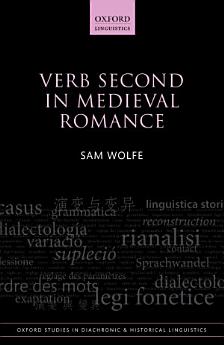Verb Second in Medieval Romance
ធ្នូ 2018 · Oxford Studies in Diachronic and Historical Linguistics សៀវភៅទី 34 · Oxford University Press
សៀវភៅអេឡិចត្រូនិច
288
ទំព័រ
family_home
មានសិទ្ធិ
info
reportការវាយតម្លៃ និងមតិវាយតម្លៃមិនត្រូវបានផ្ទៀងផ្ទាត់ទេ ស្វែងយល់បន្ថែម
អំពីសៀវភៅអេឡិចត្រូនិកនេះ
This volume provides the first book-length study of the controversial topic of Verb Second and related properties in a range of Medieval Romance varieties. It presents an examination and analysis of both qualitative and quantitative data from Old French, Occitan, Sicilian, Venetian, Spanish, and Sardinian, in order to assess whether these were indeed Verb Second languages. Sam Wolfe argues that V-to-C movement is a point of continuity across all the medieval varieties - unlike in the modern Romance languages - but that there are rich patterns of synchronic and diachronic variation in the medieval period that have not previously been observed and investigated. These include differences in the syntax-pragmatics mapping, the locus of verb movement, the behaviour of clitic pronouns, the syntax of subject positions, matrix/embedded asymmetries, and the null argument properties of the languages in question. The book outlines a detailed formal cartographic analysis of both the attested synchronic patterns and the diachronic evolution of Romance clausal structure. The findings have widespread implications for the understanding of both the key typological property of Verb Second and the development of Latin into the modern Romance languages.
អំពីអ្នកនិពន្ធ
Sam Wolfe is Associate Professor of French Linguistics at the University of Oxford. Prior to this he held teaching and research positions at the Universities of Cambridge, Manchester, and Oxford as well as a Visiting Professorship at the University of Padua. He has a PhD in Linguistics from the University of Cambridge and has published on a range of topics within French and comparative Romance linguistics, historical syntax, and formal syntax.
វាយតម្លៃសៀវភៅអេឡិចត្រូនិកនេះ
ប្រាប់យើងអំពីការយល់ឃើញរបស់អ្នក។
អានព័ត៌មាន
ទូរសព្ទឆ្លាតវៃ និងថេប្លេត
ដំឡើងកម្មវិធី Google Play Books សម្រាប់ Android និង iPad/iPhone ។ វាធ្វើសមកាលកម្មដោយស្វ័យប្រវត្តិជាមួយគណនីរបស់អ្នក និងអនុញ្ញាតឱ្យអ្នកអានពេលមានអ៊ីនធឺណិត ឬគ្មានអ៊ីនធឺណិតនៅគ្រប់ទីកន្លែង។
កុំព្យូទ័រយួរដៃ និងកុំព្យូទ័រ
អ្នកអាចស្ដាប់សៀវភៅជាសំឡេងដែលបានទិញនៅក្នុង Google Play ដោយប្រើកម្មវិធីរុករកតាមអ៊ីនធឺណិតក្នុងកុំព្យូទ័ររបស់អ្នក។
eReaders និងឧបករណ៍ផ្សេងទៀត
ដើម្បីអាននៅលើឧបករណ៍ e-ink ដូចជាឧបករណ៍អានសៀវភៅអេឡិចត្រូនិក Kobo អ្នកនឹងត្រូវទាញយកឯកសារ ហើយផ្ទេរវាទៅឧបករណ៍របស់អ្នក។ សូមអនុវត្តតាមការណែនាំលម្អិតរបស់មជ្ឈមណ្ឌលជំនួយ ដើម្បីផ្ទេរឯកសារទៅឧបករណ៍អានសៀវភៅអេឡិចត្រូនិកដែលស្គាល់។







